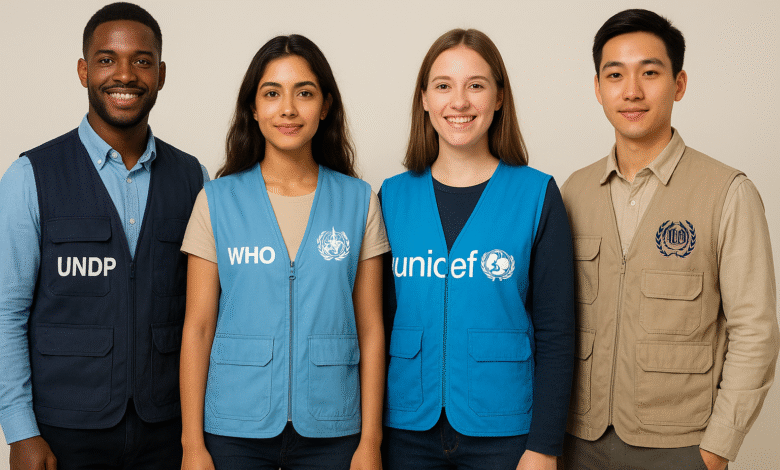UN Geographical Representation: Why Applicants from Underrepresented Member States Are Strongly Encouraged to Apply in 2025/ 2026.

UN Geographical Representation: Why Applicants from Underrepresented Member States Are Strongly Encouraged to Apply in 2025/ 2026.
Introduction
The United Nations (UN) Secretariat remains one of the most diverse workplaces in the world, bringing together staff from across the globe to serve the international community. However, even in such a global institution, some countries are underrepresented or completely unrepresented among staff members. To address this imbalance, the UN Secretariat identifies geographical posts — marked with (G) or (R) in job openings — and strongly encourages applications from citizens of these countries.
As of July 2025, nationals from the following Member States fall into this category:
Andorra, Angola, Belize, Brunei Darussalam, China, Cuba, Democratic People’s Republic of Korea, Dominica, Equatorial Guinea, Germany, Grenada, Guinea-Bissau, Indonesia, Israel, Japan, Kiribati, Kuwait, Lao People’s Democratic Republic, Libya, Liechtenstein, Malta, Marshall Islands, Micronesia (Federated States of), Monaco, Nauru, Oman, Palau, Panama, Papua New Guinea, Paraguay, Qatar, Saint Vincent and the Grenadines, Sao Tome and Principe, Saudi Arabia, Singapore, Slovenia, Solomon Islands, Timor-Leste, Turkmenistan, Tuvalu, United Arab Emirates, United States of America, and Vanuatu.
This targeted encouragement is not about favoritism. Instead, it reflects the UN’s fundamental commitment to ensuring that all Member States — regardless of size, economic power, or political influence — have an equal opportunity to be represented in shaping international governance.
Why Geographical Representation Matters
The UN Charter emphasizes equal participation of all Member States in decision-making processes. Yet, in practice, larger or historically active Member States often dominate staffing. The absence of certain countries in staffing pipelines can lead to limited perspectives and missed opportunities for inclusive policy-making.
Encouraging applicants from underrepresented or unrepresented countries helps:
Balance representation: Ensuring that the UN Secretariat reflects the diversity of its 193 Member States.
Bring fresh perspectives: Small states and emerging economies often contribute innovative solutions rooted in local realities.
Promote equity: Leveling the playing field so that no country is disadvantaged in the recruitment process.
Strengthen legitimacy: A Secretariat that visibly represents all Member States enhances global trust in the UN system.
What Are Geographical Posts (G) and (R)?
Geographical posts (G): Positions earmarked to ensure balanced staff distribution across nationalities. Applicants from underrepresented countries are prioritized.
Roster posts (R): These are linked to rosters, meaning successful applicants may be placed in a pool of qualified candidates for future vacancies.
Both types are designed to give equal access to nationals of countries who are otherwise missing in UN staffing.
Examples of Encouraged Applicants
To illustrate, here are three categories of Member States from the July 2025 list:
Small Island Developing States (SIDS) such as Kiribati, Nauru, Tuvalu, and Vanuatu. These countries face unique challenges from climate change, yet their citizens remain nearly invisible in the UN Secretariat workforce. Their participation could enrich climate policy development with first-hand insights.
Major global players like the United States, China, Germany, Japan, and Saudi Arabia. Surprisingly, despite their economic or political weight, they are currently underrepresented. Their inclusion would ensure that their contributions are balanced by diverse staffing.
Emerging economies such as Indonesia, Angola, and Paraguay. These nations bring important regional perspectives from the Global South, especially on development and environmental issues.
What This Means for Applicants
If you are a national of one of the listed countries, this is a major opportunity. Applying for geographical posts increases your chances of being selected, as recruiters are actively working to correct representation gaps.
Key tips for applicants:
Look for the markers (G) and (R): Always check the job opening number. These are priority opportunities.
Don’t self-eliminate: Even if you don’t meet every “desirable” qualification, meeting the required criteria is enough to make you competitive.
Tailor your application: Highlight how your national perspective and background can contribute to global solutions.
Use national support systems: Some countries provide assistance or reference letters for nationals applying to the UN. Check if your government has a UN desk or liaison.
Conclusion
The United Nations is at its strongest when it represents the full diversity of its Member States. By encouraging applications from underrepresented and unrepresented countries, the UN Secretariat is actively working toward a more inclusive, equitable, and legitimate global institution.
For nationals of these 40+ countries, now is the time to step forward. Your voice is needed, your perspective is valuable, and your presence can make the UN a truly universal body.
Remember: If you are from one of the listed states, every job marked with (G) or (R) is not just a vacancy — it is an invitation to shape the future of global governance.
- Resettlement Fellow Opportunity with UNHCR – Kigali, Rwanda (Deadline: 19 September 2025)
- UN Internship 2025–2026: Marketing and Dissemination (Graphic Design) – Santiago, Chile
- UN Internships 2025–2026: Exciting Global Opportunities for Students and Graduates
- UN Internship Opportunity 2025–2026: Economic Affairs Intern – Development Cooperation (New York)
- 2025 Breaking Into Data & AI: Marketable Skills and Certifications for Non-STEM Applicants




